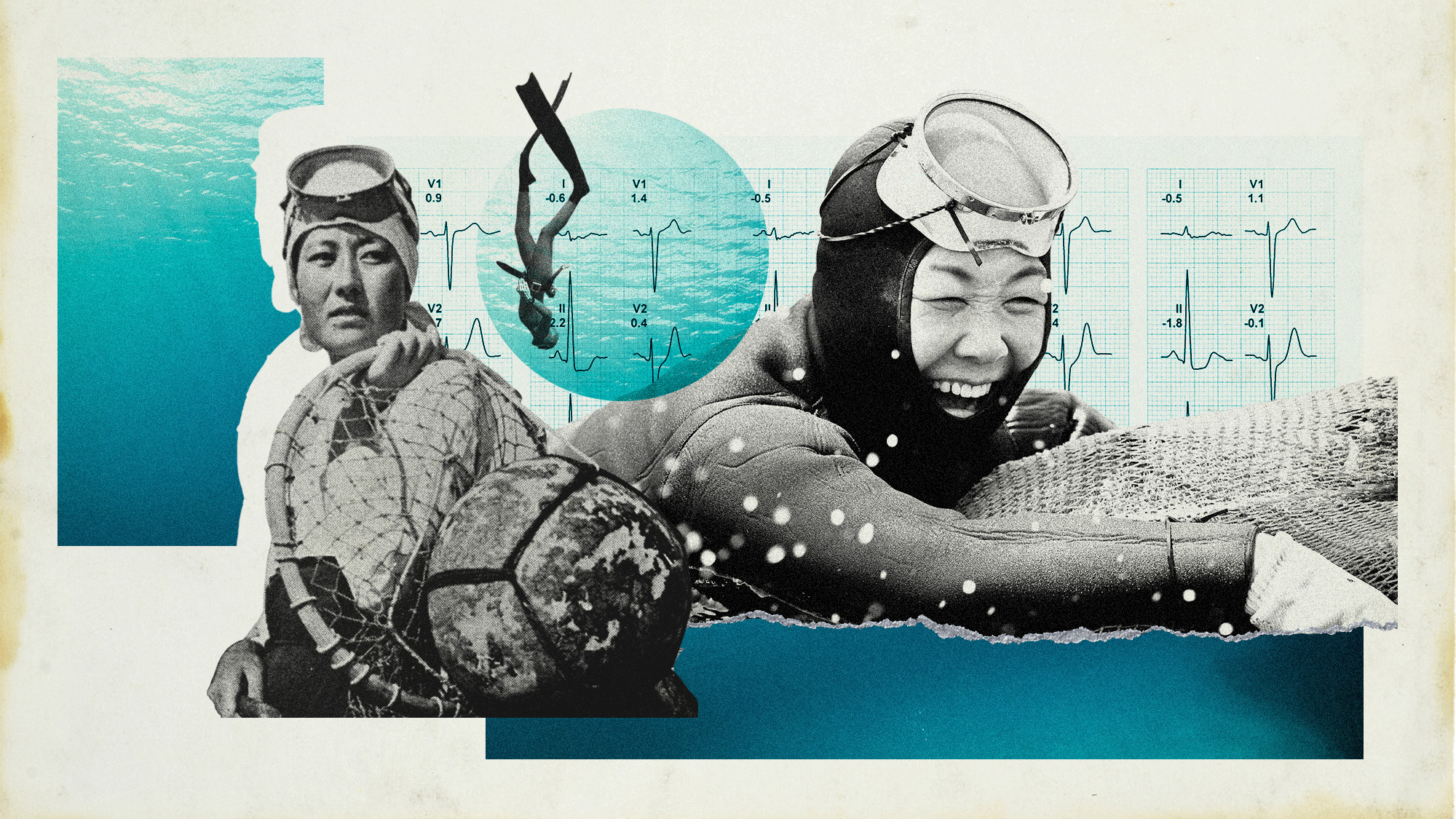The genetic secrets of South Korea's female free-divers
Unique physiology of real-life 'mermaids' could help treat chronic diseases

A free daily email with the biggest news stories of the day – and the best features from TheWeek.com
You are now subscribed
Your newsletter sign-up was successful
How do they do it? For centuries, a community of women on South Korea's Jeju Island have been diving without oxygen, holding their breath for several minutes as they harvest seafood from deep under water.
The haenyeo divers have been described as "mermaids" by the BBC. It had previously been assumed that their astonishing abilities were the product of lifelong training. But a new study has found there is a genetic component to their talent.
Frigid waters
The haenyeo free-divers head out at 6 o'clock each morning and repeatedly "plunge" into the "frigid waters" off Jeju, said National Geographic. Diving more than 30 feet beneath the surface, they gather shellfish and seaweed from the sea floor before "quickly ascending". Some will dive for up to seven hours a day, said the BBC: "just imagine the fitness levels".
The Week
Escape your echo chamber. Get the facts behind the news, plus analysis from multiple perspectives.

Sign up for The Week's Free Newsletters
From our morning news briefing to a weekly Good News Newsletter, get the best of The Week delivered directly to your inbox.
From our morning news briefing to a weekly Good News Newsletter, get the best of The Week delivered directly to your inbox.
Now, a study published in the journal Cell Reports has found that centuries of free-diving may have altered the genetics of these women and their children, creating physiological adaptations that could have significant implications for medical understanding.
When people dive, their blood vessels react in "complicated ways" to try to keep their vital organs safe as their oxygen is "running low", Melissa Ilardo, from the University of Utah Health who led the study, told The Washington Post. An enhanced protective blood pressure response to immersion in water has evolved to become "part of the genetic blueprint of all Jeju Islanders, whether or not they dive".
But a second adaptation, developed only by the haenyeo through their training, causes the heart rate to slow when they dive. When you dive, "every heartbeat" is bringing more oxygen to your cells, which is "normally a good thing", said Ilardo, but when you don't have oxygen "coming in", you want to "slow that down".
Matrilineal tradition
These findings could "hold the key" to treating chronic disease, said The Washington Post. Understanding the genetic adaptations that allow the haenyeo to withstand the physiological pressures of free-diving could lead to the development of medication that could help people at risk of stroke or blood pressure problems.
A free daily email with the biggest news stories of the day – and the best features from TheWeek.com
Jeju Islanders have one of the lowest age-standardised stroke death rates in South Korea: a little over 24 deaths per 100,000 people; compared to the United States, where there are about 37 deaths per 100,000 people. Scientists are hoping to demonstrate that the genetic make-up of the islanders, and particularly its free-diving community, is a contributing factor.
But how long the "matrilineal tradition" of free-diving will continue is in doubt, said National Geographic. It's "not as popular" with the younger generation, and most of the divers are now in their 60s, 70s and 80s, which means the "window" to study these genetic traits may be "closing".
Chas Newkey-Burden has been part of The Week Digital team for more than a decade and a journalist for 25 years, starting out on the irreverent football weekly 90 Minutes, before moving to lifestyle magazines Loaded and Attitude. He was a columnist for The Big Issue and landed a world exclusive with David Beckham that became the weekly magazine’s bestselling issue. He now writes regularly for The Guardian, The Telegraph, The Independent, Metro, FourFourTwo and the i new site. He is also the author of a number of non-fiction books.